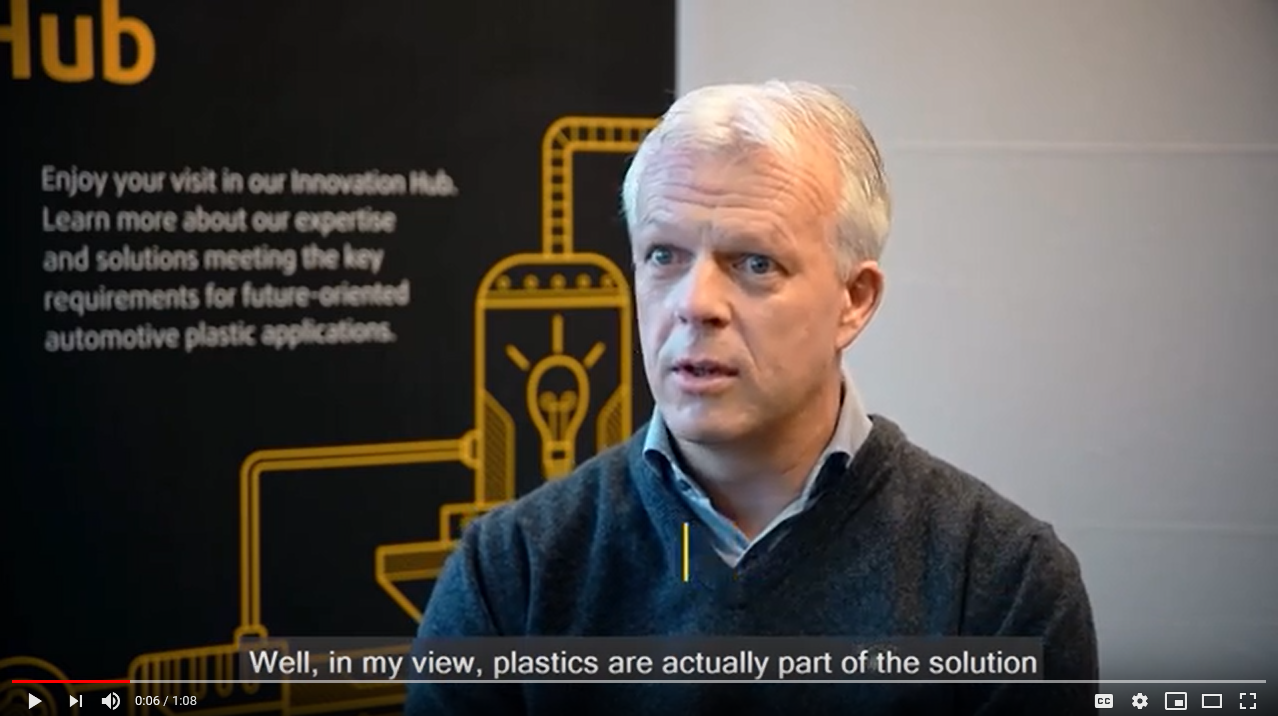The following was published on March 23, 2020 as a LinkedIn blog post by Frank Schumann, Global Marketing Manager, Automotive.

Frank Schumann, Global Marketing Manager, Automotive
As the automotive industry evolves due to market drivers ranging from customer demand to regulatory requirements around reducing CO2 emissions, OEMs are assessing their emissions with consideration for the environmental impact. This is particularly significant when considering that one third of the CO2 emissions used to build a car actually come from the supply chain.
With these market drivers and pressures, OEMs are seeking partners along the supply chain to lower the environmental impact being made throughout the manufacturing process, while offering products with the design advantages equal to all-virgin premium products. Trinseo did just that with the launch of the PULSE™ ECO Series, containing between 30-50% recycled content and combining European-sourced post-industrial recycled (PIR) Polycarbonate with Trinseo’s virgin MAGNUM™ ABS.
A Quantified Environmental Impact
While there are many recycled offerings in the automotive industry, this is the first to come with a proven, quantifiable environmental advantage because of Trinseo’s Life Cycle Assessment (LCA). An internationally standardized method under ISO 14040 and ISO 14004, LCAs evaluate all of the environmental impacts associated with a product, from the extraction of raw materials to end-of-life waste management.
How does it work? You simply allocate every unique in- and output to produce 1 kg of final plastic product. Sounds easy, right? Count every feedstock, all energies consumed or created (such as heat production) in our machinery during production. We also consider each transportation step and how much fuel is consumed, along with many other contributors.
LCAs can be large and complex, which makes it sometimes hard to compare products. The challenge is now to develop industry standards to define sensitivity criteria for framing LCAs. In the present case, Trinseo overcomes this problem as we produce virgin as well as the new ECO materials alongside, so comparing apples-with-apples without such limitation.
The present “Cradle-to-Gate-Screening LCA” for Trinseo’s new PULSE™ ECO Series showed a reduced environmental impact, with up to 48% less energy consumption, 39% less global warming potential and 39% lower water consumption.

Watch the Video - High Performing ECO PC/ABS Material for the Automotive Market
Improved Technical Features
The new product boasts strong technical features, such as superior flow properties, a low CO2 footprint, and low density, allowing up to three percent more parts per ton compared to competitive materials. The material’s low odor performance makes it highly suited to automotive interior applications such as mid/floor consoles, instrument panels and pillars, among others.
Many recycled-based materials have a tradeoff, some sort of compromise for the positive environmental impact – but that is not the case with this new produce. Its sustained low-temperature ductility even allows to use it in crash-relevant cockpit areas.
Looking into the utilization phase, or “gate-to-grave”, there is no process or other limitation – the only difference for this product is found in the environmental impact. That makes it perfectly suited as a drop-in solution to lower the CO2 footprint of various applications.
ECO is an exciting development for the automotive industry, and a start into a journey. We look forward to building on this with LCAs and product announcements in the future.
Corporate News
Trinseo’s Chuck Fifelski Discusses EIFS & Stucco Applications in Walls & Ceilings Magazine
April 16, 2024
Corporate News
Trinseo Announces Release Date and Conference Call for its First Quarter 2024 Financial Results
April 11, 2024
Corporate News
Trinseo Introduces Groundbreaking Flame-retardant Plastic Grades Without Using PFAS Additives During Manufacturing Process
April 09, 2024